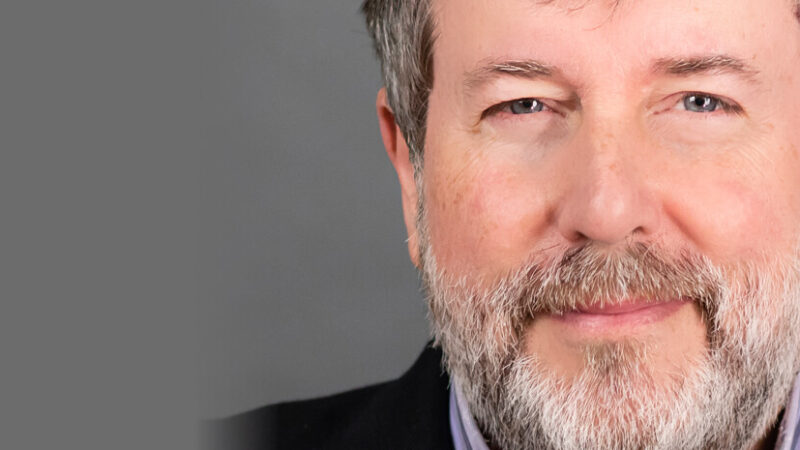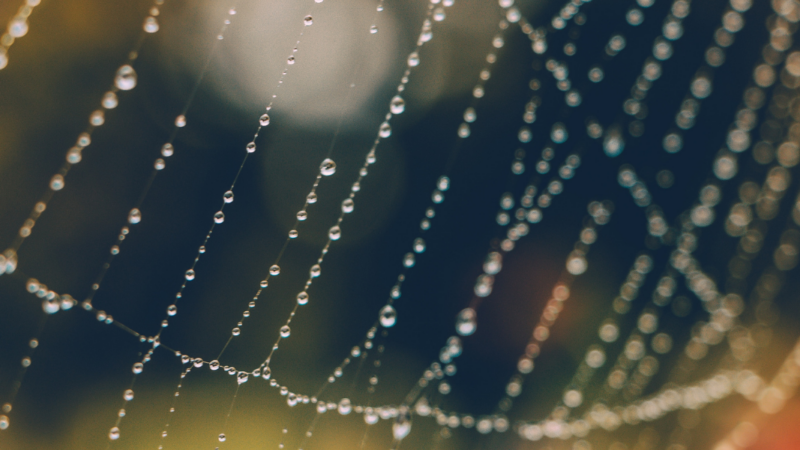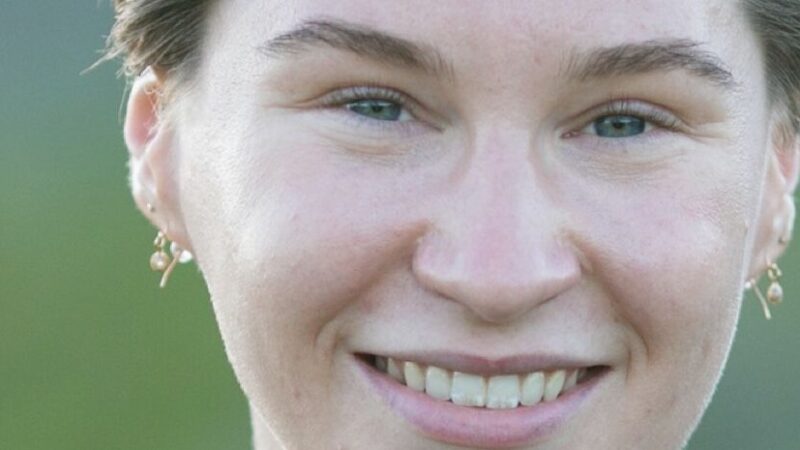-
E117: The Real Work: Letting Go from Within
Michael Singer — October 2, 2025
True spirituality isn’t about mystical experiences or lofty ideals—it’s about honestly facing...
-
Once More: Reflections on Reincarnation and the Gap Between Lives
Tami Simon — September 26, 2025
In this special reflection episode of Insights at the Edge host Tami Simon looks back on her...
-
Honey Tasting Meditation: Build Your Relationship with Sweetness
There is a saying that goes “hurt people hurt people.” I believe this to be true. We have been...
Written by:
Amy Burtaine, Michelle Cassandra Johnson
-
Many Voices, One Journey
The Sounds True Blog
Insights, reflections, and practices from Sounds True teachers, authors, staff, and more. Have a look—to find some inspiration and wisdom for uplifting your day.
Standing Together, and Stepping Up
Written By:
Tami Simon -
The Michael Singer Podcast
Your Highest Intention: Self-Realization
Michael Singer discusses intention—"perhaps the deepest thing we can talk about"—and the path to self-realization.
This Week:
E116: Doing the Best You Can: The Path to Liberation -
Many Voices, One Journey
The Sounds True Blog
Insights, reflections, and practices from Sounds True teachers, authors, staff, and more. Have a look—to find some inspiration and wisdom for uplifting your day.
Take Your Inner Child on Playdates
Written By:
Megan Sherer
600 Podcasts and Counting...
Subscribe to Insights at the Edge to hear all of Tami's interviews (transcripts available, too!), featuring Eckhart Tolle, Caroline Myss, Tara Brach, Jack Kornfield, Adyashanti, and many more.
Most Recent
Russ Hudson: The Enneagram: Nine Gateways to Presence
Russ Hudson is one of the world’s foremost teachers and developers of the Enneagram personality typology system, having coauthored (with Don Richard Riso) five bestselling books on the subject. With Sounds True, Russ has created an 11-CD audio-learning program called The Enneagram: Nine Gateways to Presence. In this podcast, Tami Simon speaks with Russ about the original purpose of the Enneagram, how our personality types are linked to a deeper level of awareness, and how we can use the Enneagram system to continually discover that we are much more than we may habitually think. They also discuss accessing the gifts of our personality types while avoiding the associated pitfalls or “fixations” of any given type, an overview of each of the nine types, Russ’ guidance in determining your own type, and much more.
Poetic Mindset Tip: Your Awe Can Be Connective
POETIC MINDSET TIP: YOUR AWE CAN BE CONNECTIVE
Try applying a mentality of awe when you’re interacting with someone who lives a life very different from yours. Let your awe be the inspiration for a connection. How did they come to believe something that makes you so uncomfortable? What is the root of their behavior? Maybe this person has a dissimilar political view. Maybe they live in a rural town, and you live in a city. Maybe they grew up practicing a particular religion, and you didn’t. These are the big facts that surround the difference between you, but maybe this contrast can be intriguing instead of off-putting? When I find myself on a disparate page from someone else, I try not to close up. I try to lean in to discovery. It’s frequently these occasions that surprise me the most and give me new insight.
When I let myself stay curious about another person’s point of view instead of shutting down, I’m challenged to see with a new lens—and that feels creative. What would I have overlooked if I hadn’t led with a sense of reverential respect? For example, through Poem Store, I developed very unlikely friendships that are still a huge part of my life.
From a familial bond with a timber baron to a deep camaraderie with a wealthy businessman, I found myself open to all kinds of folks I might normally shut out if I weren’t in the mode of poetic openness.
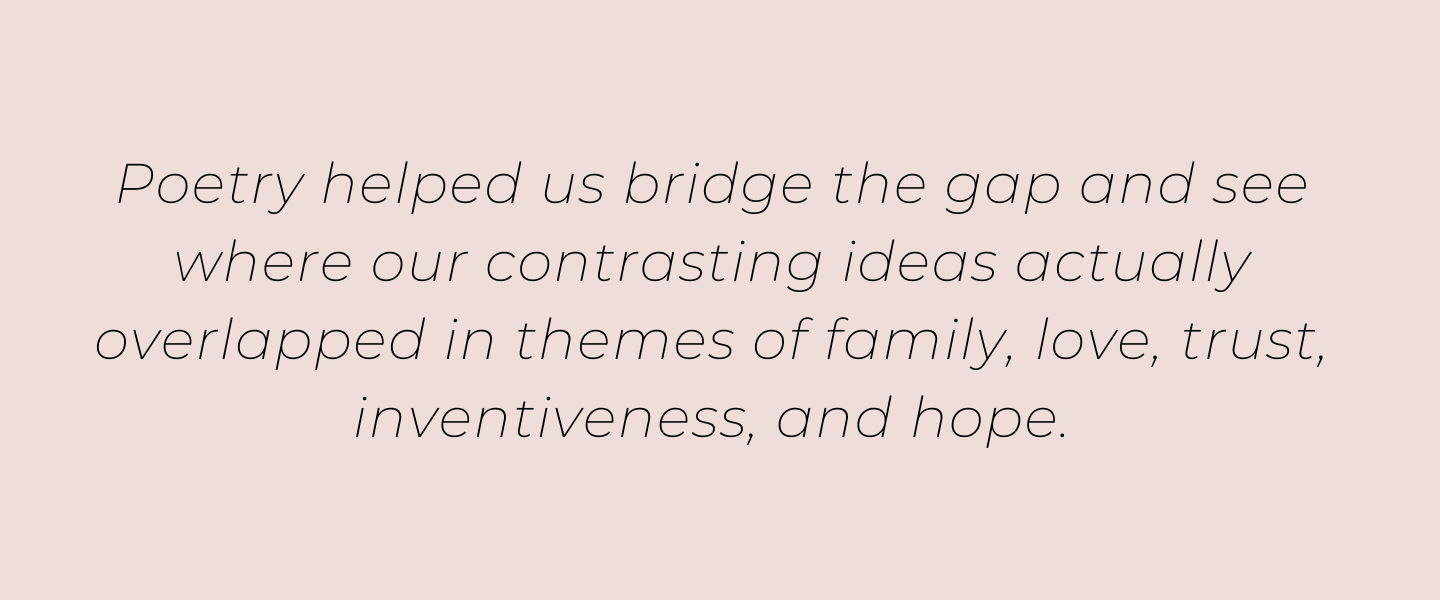
These relationships continue to teach me how to develop compassionate language and an availability for dialogue that focuses on similarities, respect, and humanity, as opposed to difference, disdain, and judgment.
Letting your interest in a person’s inner world outweigh your differences could have unifying results. Awe is often the key to the similarities we all share. It’s our curiosity that links us, and these connections can cause the largest transformations.

Housemates
Pierre Talón lives
in the kitchen,
close to the kettle
with an invisible web.
His brothers and sisters
share the same name.
Long glass-like legs
and dark teardrop bodies.
Penelope is on the front porch,
blending with the potted plant,
her green abdomen longer each day,
her hind legs like mechanical armor.
Pierre Talón catches the flies
and Penelope reminds me
to pause, peering between blossoms.
The spider never leaves, just changes
corners and sizes, and dodges the steam
when I make tea. The grasshopper
greets me for months, until one day
she sheds her skin and leaves me
with a perfect paper version of herself.
This is an excerpt from Every Day Is A Poem: Find Clarity, Feel Relief, and See Beauty in Every Moment by Jacqueline Suskin.
 Jacqueline Suskin has composed over forty thousand poems with her ongoing improvisational writing project, Poem Store. She is the author of six books, including Help in the Dark Season. Her work has been featured in the New York Times, the Atlantic, and Yes! magazine. She lives in Northern California. For more, see jacquelinesuskin.com.
Jacqueline Suskin has composed over forty thousand poems with her ongoing improvisational writing project, Poem Store. She is the author of six books, including Help in the Dark Season. Her work has been featured in the New York Times, the Atlantic, and Yes! magazine. She lives in Northern California. For more, see jacquelinesuskin.com.
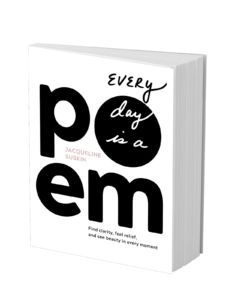
Sounds True | Amazon | Barnes & Noble | Indiebound | Bookshop
Lauren Geertsen: Cutting the Strings of the Invisible ...
Lauren Geertsen is a body connection coach, intuitive mentor, and nutritional therapy practitioner. With Sounds True, Lauren has published a book titled The Invisible Corset: Break Free from Beauty Culture and Embrace Your Radiant Self. In this episode of Insights at the Edge, Tami and Lauren discuss how we can shift from trying to dominate and control our bodies, to entering into a state of true body partnership. They explore the many layers of history and culture that have led us into our current paradigm of ownership over women’s bodies, both the obvious ways in which the beauty industry emphasizes appearance, as well as more deeply embedded and insidious societal messages. Lauren also breaks down the five key “strings” that keep the invisible corset in place, helping women recognize their own internalized oppression. Finally, Tami and Lauren talk about the power of intuition, and how taking off their corsets allows women to access their natural intuitive capacities as bodily awake, intelligent beings.
Customer Favorites
The Wisdom in Our Emotions
Tami Simon speaks with Karla McLaren, an award-winning author and empath whose approach to working with emotions has helped countless numbers of people heal from trauma. She is the author of The Language of Emotions: What Your Feelings Are Trying to Tell You, as well as the Sounds True audio learning series on The Language of Emotions about how to unlock and learn from the wisdom held within each of our emotions. Karla discusses what it means to be an empath, how to talk to children about their emotions, viewing emotions in terms other than positive versus negative, and learning how to listen to our emotions. (54 minutes)
Sera Beak: Bringing Your Soul Home
Sera Beak is a scholar of comparative religions who has conferred with shamans, monks, and mystics the world over. She is the author of The Red Book: A Deliciously Unorthodox Approach to Igniting Your Divine Spark and Red Hot and Holy: A Heretic’s Love Story. With Sounds True, she has most recently published Redvelations: A Soul’s Journey to Becoming Human. In this episode of Insights at the Edge, Tami Simon speaks with Sera about the fragmentation of the soul and the journey that Sera undertook when she realized that pieces of her own soul had gone missing. They discuss the passage of core wounds between lifetimes and Sera’s experiences of remembering and reclaiming Sarah, the forgotten daughter of Jesus and Mary Magdalene, as a lost part of her own soul. Sera describes how she reckoned with her experiences—first wanting to not share them with anyone else, and then growing into the realization that to not do so would be to abandon a key part of her essential self. Finally, Tami and Sera talk about how to embody true, divine love and how this eternal love transmits through “the organic lineage” of all life. (61 minutes)
Tara Brach: Radical Acceptance
Tami Simon speaks with Tara Brach, an author, clinical pychologist, and founder and senior teacher of the Insight Meditation Community of Washington (District of Columbia). She’s the author of the Sounds True audio learning program Radical Self-Acceptance: A Buddhist Guide to Freeing Yourself from Shame and Meditations for Emotional Healing. Tami and Tara discuss radical acceptance in the face of difficult emotions. (54 minutes)

